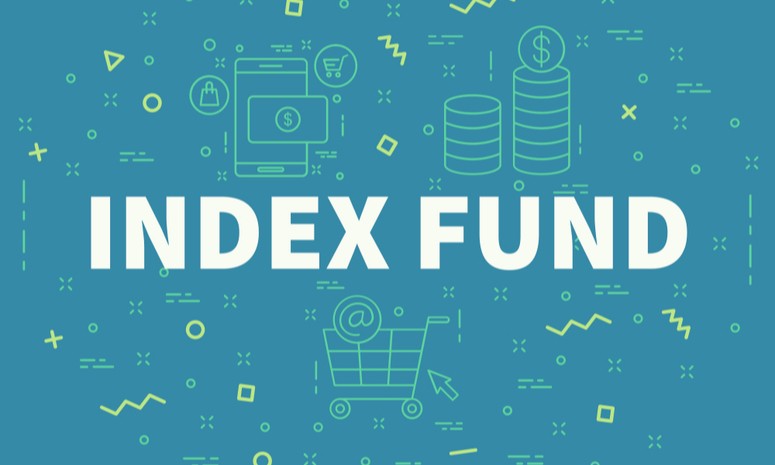An index fund is a type of investment that tracks the performance of a market index, which is typically comprised of stocks or bonds. Index funds often invest in all of the components that make up the index they track, and they have fund managers whose duty it is to make sure the index fund matches the index’s performance.
Your 3-step process to investing in index funds
- Pick the index that you want to track.
- Choose a fund that tracks your selected index.
- Buy shares of that index fund.
1. Pick an index
Index funds can be used to monitor hundreds of different indexes. The S&P 500 Index, which covers 500 of the largest businesses in the United States stock market, is the most popular index. Here’s a quick rundown of several other popular indices, organized by market segment:
- Large U.S. stocks: S&P 500, Dow Jones Industrial Average, Nasdaq Composite
- Small U.S. stocks: Russell 2000, S&P SmallCap 600
- International stocks: MSCI EAFE, MSCI Emerging Markets
- Bonds: Bloomberg Barclays Global Aggregate Bond
Aside from broad indexes, there are sector indexes for specific industries, country indexes for stocks in specific countries, style indexes for fast-growing firms or value-priced stocks, and other indexes that limit their investments depending on their own filtering algorithms.
2. Choose the right fund for your index
When you’ve decided on an index, you’ll almost always be able to discover at least one index fund that tracks it. You may have a dozen or more options for popular indexes like the S&P 500, all of which track the same index.
You’ll want to ask some basic questions if you have more than one index fund option for your chosen index. First, which index fund closely reflects the index’s performance? Second, which index fund has the most cost-effective strategy? Third, does an index fund have any limitations or restrictions that prevent you from investing in it? Finally, does the fund provider offer any other index funds that you’d want to try? The answers to those questions should make selecting the appropriate index much easier.
3. Buy index fund shares
You can usually open an account directly with the mutual fund provider that offers the index fund to acquire shares in it. You can also open a brokerage account with a broker that allows you to purchase and sell shares of the index fund you want to invest in.
Again, consider fees and features when selecting which method is ideal for you to purchase shares of an index fund. Some brokers charge more for consumers who want to buy index fund shares, making it cheaper to open an account directly with the index fund company. Many investors, however, prefer to keep all of their assets in a single brokerage account. If you want to invest in a variety of index funds from several fund managers, the brokerage option may be the ideal approach to consolidate all of your investments into a single account.

Why invest in index funds?
Investing in index funds is one of the most straightforward and efficient ways for investors to accumulate money. Index funds may turn your investment into a substantial nest egg in the long run by simply replicating the spectacular performance of the financial markets over time — and best of all, you don’t have to become a stock market expert to accomplish it.
Index funds are very valuable to investors for a variety of reasons:
- Spend as little time as possible investigating specific stocks. Instead, you can trust the portfolio manager of the fund to invest in an index that already includes the stocks you want to buy.
- You can invest with a lower level of risk. Most indexes include dozens or even hundreds of stocks and other investments, so you’re less likely to lose a lot of money if one or two of the index’s companies have a terrible year.
- For a wide range of assets, index funds are offered. Stock index funds and bond index funds, which cover the two major components of most people’s investment strategies, are available to purchase. However, you can buy more specialized index funds that focus on specific aspects of the financial markets.
- It is significantly less expensive. Index funds are typically far less expensive than actively managed funds. That’s because an index fund management only has to buy the stocks or other investments that make up the index; you don’t have to pay them to make their own stock decisions.
- You’ll save money on taxes. In comparison to many other investments, index funds are highly tax-efficient. Index funds, for example, don’t have to buy and sell their holdings as frequently as actively managed funds, so they don’t generate capital gains that can increase your tax burden.
- It’s a lot easier to stick to your investment strategy when you have a plan. When you invest in index funds, you may invest automatically month after month and disregard short-term ups and downs, knowing that you’ll benefit from the market’s long-term development.
Why not invest in index funds?
Index funds aren’t for everyone, despite how simple and straightforward they are. The following are some of the disadvantages of investing in index funds:
- You’ll never be able to outsmart the market. Index funds are only designed to equal the market’s performance, so if you want to prove your worth as a better investor, you won’t be able to do so with them.
- You don’t have any kind of loss insurance. In good times and bad, index funds track their markets, and when the market falls, your index fund will fall with it.
- You will not always own stocks that you enjoy. You may wind up holding some stocks you’d rather not own, while losing out on others you’d prefer, depending on the index you chose.
Click here to ead more useful and interesting articles.

